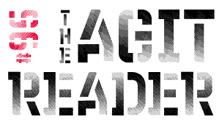
City of Daughters, Thief, and Streethawk: A Seduction
Merge
Let me start by saying that the most shocking thing about these reissues is that there’s only one track among the 42 that breaks the six-minute barrier. Nevertheless, by the time you reach the end of Streethawk: A Seduction, you feel Destroyer principal Dan Bejar ready to launch himself into his future of nine-minute paeans.
City of Daughters (from 1998) is relatively sparse in terms of the accompaniment, but Bejar’s talent for turning simple, even garish, lyrics into anthems is already here. On “No Cease Fires!” you’ll find him crooning the title over and over along with “I want you, I want you, I want you” before the synth solo takes over. And it works. Somehow, with enough conviction, he’s able to make just about anything read as passionate and profound. Those takeaways get more erudite with time, though. “Destroyer’s Temple,” from Thief kicks off with the unforgettable (and oft-refrained) line “You’ll find there’s joy in being barred from the temple.”
Tellingly, City of Daughters, for an album so sparse of collaborators, features a lot of experiments in sound and instrumentation, even if those sounds aren’t as thickly layered as they’ll later be. There are several short “noise” tracks, the aforementioned synth solos, rain effects and “found voices,” and you can look to “The Space Race” for probably the only club beat break on a Dan Bejar album. That’s just one of the ways that many of these early songs were nearly ready for the full-on Destroyer treatment.
Bejar’s (and John Collins’ and Scott Morgan’s) talent for arranging suitable settings for his stories and rants really starts to show as soon as 2000’s Thief. The band’s shifts from staccato to shimmering on “Queen of Languages,” and “In Dreams” is the beginning of what might be considered Destroyer’s signature sound. It’s sometimes a bit herky-jerky here, but of course in later years it yields masterpieces of bombast like “The State” (from 2008’s Trouble in Dreams). Even more so on Streethawk: A Seduction. The moment comes again and again when, if it were just four years later, the larger band would kick in and take off into flights of virtuosity for a few minutes. On the seven-minute “The Bad Arts,” for instance, that moment yields a single bass guitar line, and later, a lonely guitar solo.
The fact is Dan Bejar's longevity somehow managed to sneak up on me. Has it really been 12 years since City of Daughters? In fact yes, 12 years and eight releases later we’re able to look back at from whence the indie-pop icon—Canada's hybrid Lou Dylan (or do you prefer Bob Reed?)—came and realize that he emerged almost fully prepared, and it was mostly a matter of handing him the right tools to enable him to bring his grander visions to life.
Matt Slaybaugh
PAST PERFECTS
Elliott Smith, Roman Candle and From a Basement on the Hill
Nick Cave and the Bad Seeds Reissues Part Two
Black Tambourine, Black Tambourine
Paul Revere & the Raiders, The Complete Columbia Singles
The Jon Spencer Blues Explosion, Dirty Shirt Rock 'n' Roll: The First Ten Years
The Plimsouls, Live! Beg, Borrow & Steal
Pavement, Quarantine the Past
Fela Kuti, "Chop 'n' Quench" Batch
Buzzcocks, Another Music in a Different Kitchen, Love Bites, and A Different Kind of Tension
Frank Sinatra, Strangers in the Night
Next Stop... Soweto
Good God! Born Again Funk
Animal Collective, Campfire Songs
13th Chime, The Lost Album
